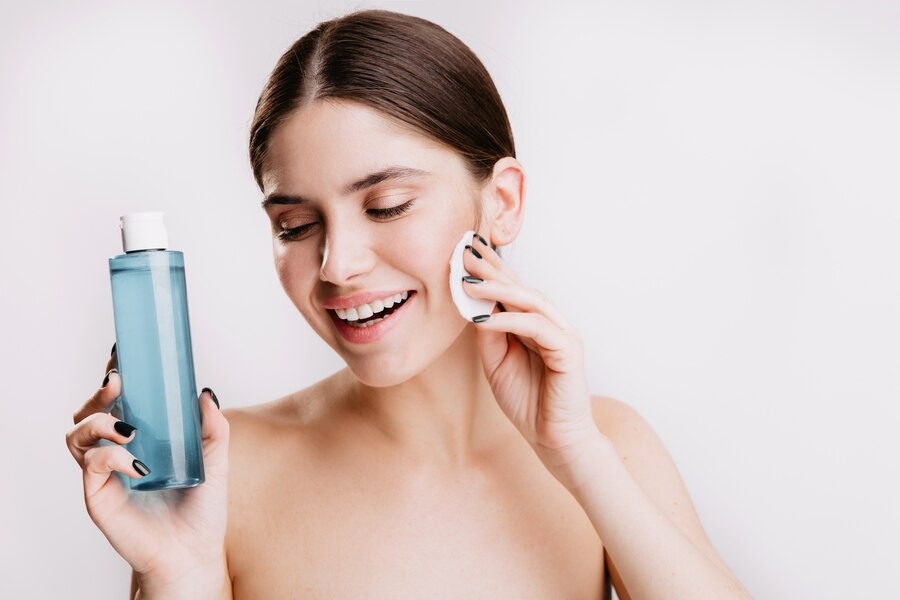Lactic acid and glycolic acid are popular ingredients in skincare, particularly for exfoliation. These acids help to reduce fine lines, enhance skin texture, and delay signs of aging. But what sets lactic acid apart from glycolic acid? Read on to learn more.
Differences Between Lactic Acid and Glycolic Acid
Lactic acid and glycolic acid are both alpha hydroxy acids (AHAs) commonly used in skincare for their exfoliating properties. They’re effective at addressing uneven skin tone, improving texture, and managing early signs of aging. Here are their differences and some suggestions on which acid may be best for your skin type.
Lactic Acid
Lactic acid, a gentle AHA, is often derived from dairy products. This acid gives yogurt and sour milk their distinct taste and has been used historically in milk baths to enhance skin beauty. For vegans, lactic acid can be obtained from the fermentation of plant-based ingredients like flour or sugar beets.
Lactic acid is frequently included in exfoliating skincare products, where it gently removes dead skin cells from the skin’s surface. Its exfoliating action is mild, meaning it doesn’t typically cause visible peeling. Instead, dead skin is gradually removed, especially when you cleanse your face the morning after using a peel with lactic acid.
Key benefits of lactic acid include:
- Promotes quicker cell turnover
- Helps maintain skin hydration for a moisturized look
- Aids in pore cleansing
- Treats and prevents acne
- Reduces dark spots on the face
Glycolic Acid
Glycolic acid, found naturally in some fruits like beets and sugar cane, is primarily used in skincare as a synthetic compound.
Some of the skin benefits of glycolic acid include:
- Speeds up skin cell regeneration
- Boosts collagen production for firmer, more elastic skin
- Cleanses and unclogs pores
- Reduces the appearance of fine lines
- Fades dark spots
- Hydrates the skin, giving a youthful glow
Which is Better, Lactic Acid or Glycolic Acid?
The choice between lactic acid and glycolic acid depends on your skin’s needs and sensitivity. Glycolic acid has a smaller molecular structure among AHAs, allowing it to penetrate the skin more deeply.
If you have sensitive skin or are new to AHAs, lactic acid may be a good starting point due to its mild nature. For more intensive exfoliation, glycolic acid can be a stronger alternative.
When beginning AHA use, it’s advisable to start slowly to gauge your skin’s response. Begin by using it three times a week at a low concentration, and if no irritation occurs, such as redness or breakouts, you can gradually increase to four times a week. If you experience irritation, pause and allow your skin time to adjust before trying again.
Avoid combining lactic acid or glycolic acid with retinol, as this can lead to excessive peeling and dryness. Both acids can make skin more sun-sensitive, so always use sunscreen to protect against UV damage.
You can incorporate lactic acid or glycolic acid into your routine as exfoliants, depending on your unique skin needs. For more tailored advice, consult a dermatologist or use the Ai Care app’s consultation feature, available on the App Store and Play Store.
Interested in more health tips, first aid advice, or home remedies? Click here!
- dr Nadia Opmalina
WebMD Editorial Contributors. What to Know About Lactic Acid for Skin Care. Available from: https://www.webmd.com/beauty/lactic-acid-for-skin-care
Palmer, A. (2024). Lactic Acid for Skin to Smooth Lines and Even Complexion. Available from: https://www.verywellhealth.com/lactic-acid-skin-care-4178819
Ames, H., Richardson, H. (2024). Uses and benefits of lactic acid in skin care. Available from: https://www.medicalnewstoday.com/articles/lactic-acid-for-skin
West, M. (2023). Benefits of glycolic acid for the skin. Available from: https://www.medicalnewstoday.com/articles/glycolic-acid-for-skin
Palmer, A. (2024). How to Use Glycolic Acid in Your Skin Care. Available from: https://www.verywellhealth.com/glycolic-acid-15774












